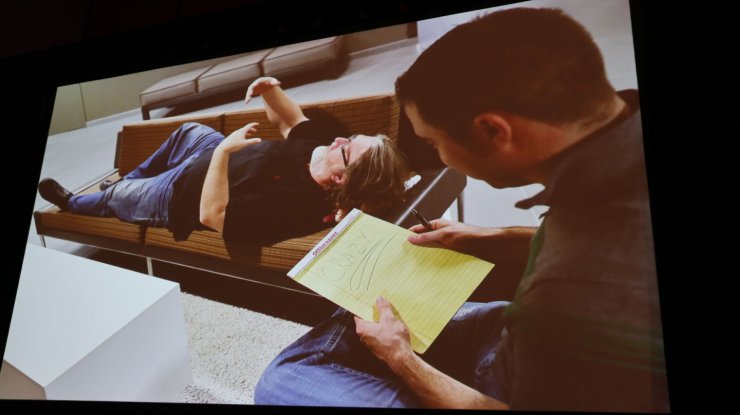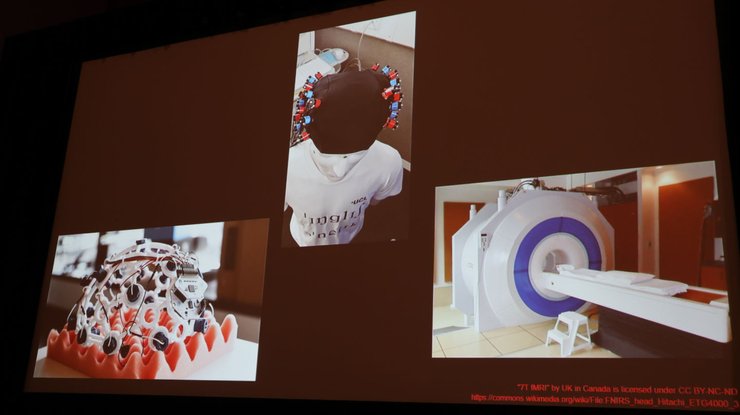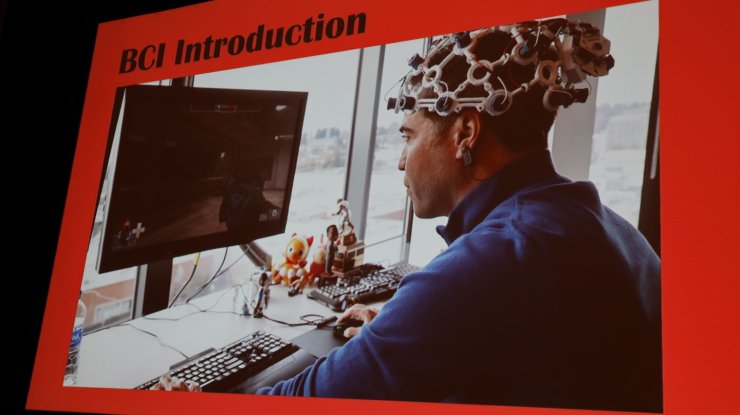A Mind for Gaming
One trivia about Valve Software - the infamous creator of the Half-Life series and the owner of Steam - is that the company’s structure is relatively flat. Which means most of the staffers in the company held very vague titles. Out of the plenty of positions in the company, the one might raise quite a lot of eyebrows is Principal Experimental Psychologist. He made himself known during this year’s Game Developers Conference, speaking about how Valve could study gamers’ brain activity during plays and what they might do with the data in the future.
Mike Ambinder from Valve Software, the person who held this quizzical title, made a very bold disclaimer during the panel: "This is supposed to be speculative … This is one possible direction things could go.” Having this in mind, however, the details about this concept is interesting enough that we’d love to delve deeper into. In spite of the fact that the company behind this idea is far more better at conceptualising the future rather than turning them into reality.
We’re still waiting for the third Half-Life to come out.
In this snapshot here of the show, we can see on the screen the image of Ambinder goofing around with the company’s CEO Gabe Newell. It’s not just a gag, as explained by Ambinder himself: “Every talk I've given, this reliably gets a laugh. Think about that. What if we could elicit reliable reactions [from video games] and determine we were doing so?”

Memory Problem
During his talks, Ambinder made an analogy between using a video game’s controller with having a conversation. When you talk to a person, communicative gestures and your use of language is similar to the use of a gaming controller being that they’re all transmitting clear signals. But when it comes to subtler signals like non-verbal cues: "video games leave us out of the non-verbal part of a conversation,”.
Therefore, Ambinder argued that game had a limitation being memory. Different mouse-and-keyboard combinations can be memorised by players, and it is a number that goes up to a hundred different ones. Though it may sound as if it is a lot and more than enough: “that is still a limitation.” Reaching into the realm of neuropsychology, he mentioned that the exact time that it takes for a synapse to reach a finger can average around 100 milliseconds.
"What if we could shave as much as 20-30 milliseconds off that time?”.
Hardware currently existing, without the barrier of money, can allow game-makers to monitor everything from synaptic responses, ocular movements, muscle tension, body posture, down to the so-called “galvanic skin response.” The suggestions Ambinder put forward weren’t at all unfamiliar, it has been mentioned before in the heart rate sensor experiments, where the game can automatically adjust difficulty based on the feelings of the players during the course of the game. And we’ve also seen many studios and companies in the gaming industry talked about how eye-tracking sensors can be valuable addition to the gaming experience.
A Threat on Privacy?
But there’s one suggestion of Ambinder that had raised alarms: Adjusting virtual goods in the game based on these data. "We can figure out what kinds of rewards you like, and the kinds you don’t,”. Not only it has implications on privacy, it is also vulnerable to abuse: There’s no stopping games from making it easier for players to get better loots or items the moment they’re bored to keep them hooked further. Loot boxes have already been a highly controversial problem and this will only serve to inflame the matter even further.
Real-life Predators
Not all suggestions coming from this idea were negative, however. Such application can help people who are deaf, blind, or other types of sensory deprivation perceive and interact with video games in a completely new way. Technically, the core of it is based on something called Transcranial Magnetic Stimulation (TMS), it has already been used to help people suffering from insomnia, PTSD, and others.
"Can we make you see in infrared like the Predator? Give you access to spatial location data, or even echolocation? Could we add a sense? Improve your sense of touch? Help you notice new frequencies?” These are the questions that Ambinder asked during the course of the talk. "Taste and smell things you've never tasted or smelled? Focus your attention? Stimulate certain areas of your brain to recruit neurons for other tasks? Help you hold more memory at once? improve memory retrieval?”

These are speculation. Scroll back to the disclaimer at the beginning, and you’d be fairly disappointed that all of these questions might not be addressed today. TMS is still a hypothetical system, and is even more fantastic than the synapse monitoring system that Gabe Newell was sporting in the photos shown during the conference.
Back to Reality
It doesn’t mean that equipment capable of doing such thing would be affordable or portable once they come out. The head and skin interaction required would necessitate a bulky headset, and not a lot of people would be willing to wear such a thing. But Valve may have an idea of how they can persuade players to wear the contraption if it was to become a reality. In one of the photos shown during the conference, Ambinder talked over a photo of himself wearing an HTC Vive virtual reality headset. "Not everyone plays VR, but VR gives you semi-consistent contact with a source of brain activity,”

The detail wouldn’t be a quarter interesting had it not came out amidst allegations that Valve was about to release a new VR headset.
Nonetheless, until such a system becomes a common device among gamers, Valve still got quite a lot of work cut out for it if it wants to make this a reality. The idea of games having an: "improved, qualitatively better player experience if developers had access to states, emotions, cognition, and decisions.” Is a fantastic thought to dwell on. But it shouldn’t stop you from thinking about the implications on privacy that this very idea would have when games have the ability to respond to our brainwaves to further their business goal rather than serving you chaste entertainment.










Comments